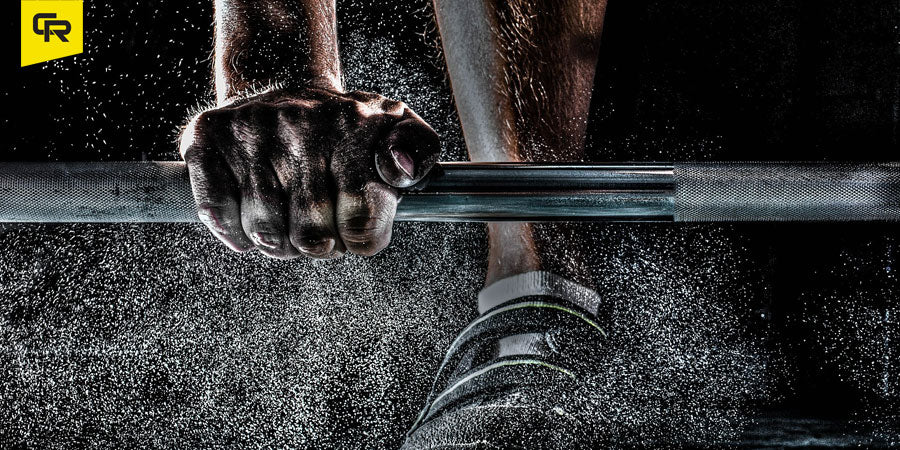Note from Crossrope: we're excited to publish our very first guest post on our blog. Eric Bach is an ex-athlete turned strength and performance coach who helps clients improve their strength and athletic performance at Bach Performance. His recent eBook, The Power Primer 2.0, will teach you how to bridge the gap between athletics and aesthetics (using simple tools like the jump rope) to build a shredded, powerful looking body.
Take it away Eric...
When most people think about training for athleticism, they picture heavy lifting, throwing, and sprinting.
Often lost in the fog is jumping. Or more specifically, jumping rope.
What gives?
After all, some of the best athletes of past (Walter Payton) and present (Floyd Mayweather) had the jump rope as a mainstay in their training.
It’s time to take a page from the book of the greats and put the jump-rope where it belongs: back in your high performance training plan.
The Jump Rope is Key for Building Athleticism
Hitting the weights hard and eating well is important, but true athleticism requires foot speed and coordination, not a set of abs and herculean strength.
And while it’s great to be strong, jacked, and fast, these qualities are useless without technique, coordination, and timing.
The jump rope builds three neglected athletic qualities better than any other training tool.
1. Rhythm: The ability to fire muscles and movements in a controlled, efficient pattern.
2. Timing: The ability to generate force fast, like a quick jump or cut.
3. Coordination: Being able to generate force quickly and in the right order.
Maximizing these three qualities together improves all-around movement capabilities needed for athleticism.
Introduction to Power & Performance Training with a Jump Rope
If you’re like most lifters, it’s been a while since you’ve played a sport or taken off into a full-out sprint. If this is the case, your body is deconditioned to the high-impact and contractile forces of all out jumps and sprints.
The result?
We’ve all been there. It’s common to see former athletes jump headfirst back into a pick-up basketball game and pop an achilles, or sprint down the field and tweak a hamstring.
Without preparing your body for the explosive nature of sports, your injury risk skyrockets.
The jump rope remains the best tool to introduce explosive, repetitive movement back into your training before jumping headfirst into a competitive sport for two reasons:
1. Jumping rope is a self-limiting exercise. Meaning, if you break form, you’ll kick the rope and need to start the rep over. Unlike sprinting or high rep squatting where you can bludgeon on despite poor form, jumping rope protects you from poor mechanics.
2. The jump rope stimulates and reinforces integrity of the ankle joint. As mentioned, achilles injuries are common, especially for ex athletes jumping back into sports. Jumping rope stimulates the ankles to grow strong and stable, building a solid foundation from the bottom up to prevent injury.
3. Jumping rope is low impact. Compared to traditional conditioning methods like sprinting, the jump rope is a very low-impact training tool. Max jumps and double unders not included, jumping rope uses a smaller jump and thus, a shorter distance is covered on impact. This reduces the compressive and jarring force on your joints due to lesser impact on the ground.
The Ultimate Conditioning Tool?
The jump rope may be the ultimate conditioning tool. Because of its low impact, self-limiting nature, it’s rare to get injured. And despite being low impact and self-limiting, the jump rope is an extremely metabolically demanding total body exercise.
Any exercise that minimizes injury risk while maximizes training intensity and results is good in my book, which is why I’ve included Crossropes in my latest eBook, The Power Primer 2.0. The book is on sale right now for 50% off until this Friday!
Got Questions for Eric?
Feel free to leave them in the comment section below!










